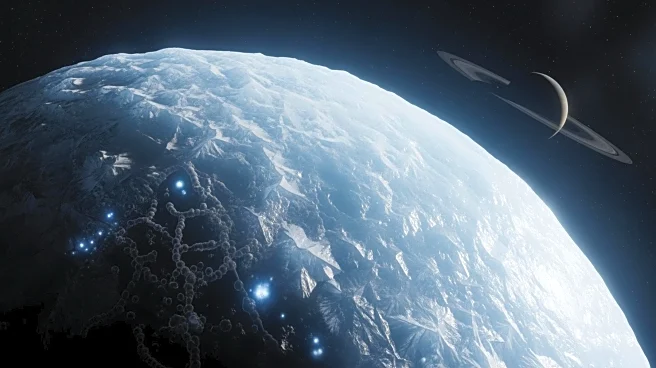What's Happening?
NASA's Cassini mission has discovered new organic compounds in ice particles ejected from the ocean beneath the frozen surface of Saturn's moon Enceladus. The analysis revealed previously undetected molecules,
suggesting potential chemical or biochemical activity. The ice grains were collected just 13 miles from the moon's surface, marking the first observation of such diverse organics in fresh particles from Enceladus' subsurface water. Published in Nature Astronomy, the findings enhance previous discoveries by analyzing particles collected during Cassini's direct flight through a plume. This discovery is crucial as it indicates chemical activity that could support biological processes, essential for life on Earth.
Why It's Important?
The discovery of fresh organic compounds on Enceladus is a significant step in understanding the moon's potential for supporting life. These findings contribute to the broader search for extraterrestrial life by providing evidence of active organic chemistry in environments beyond Earth. The presence of diverse organics in fresh ice particles suggests ongoing chemical processes that could be similar to those that support life on our planet. This research may influence future missions to Enceladus and other celestial bodies, as scientists seek to explore and understand the conditions that could harbor life.









